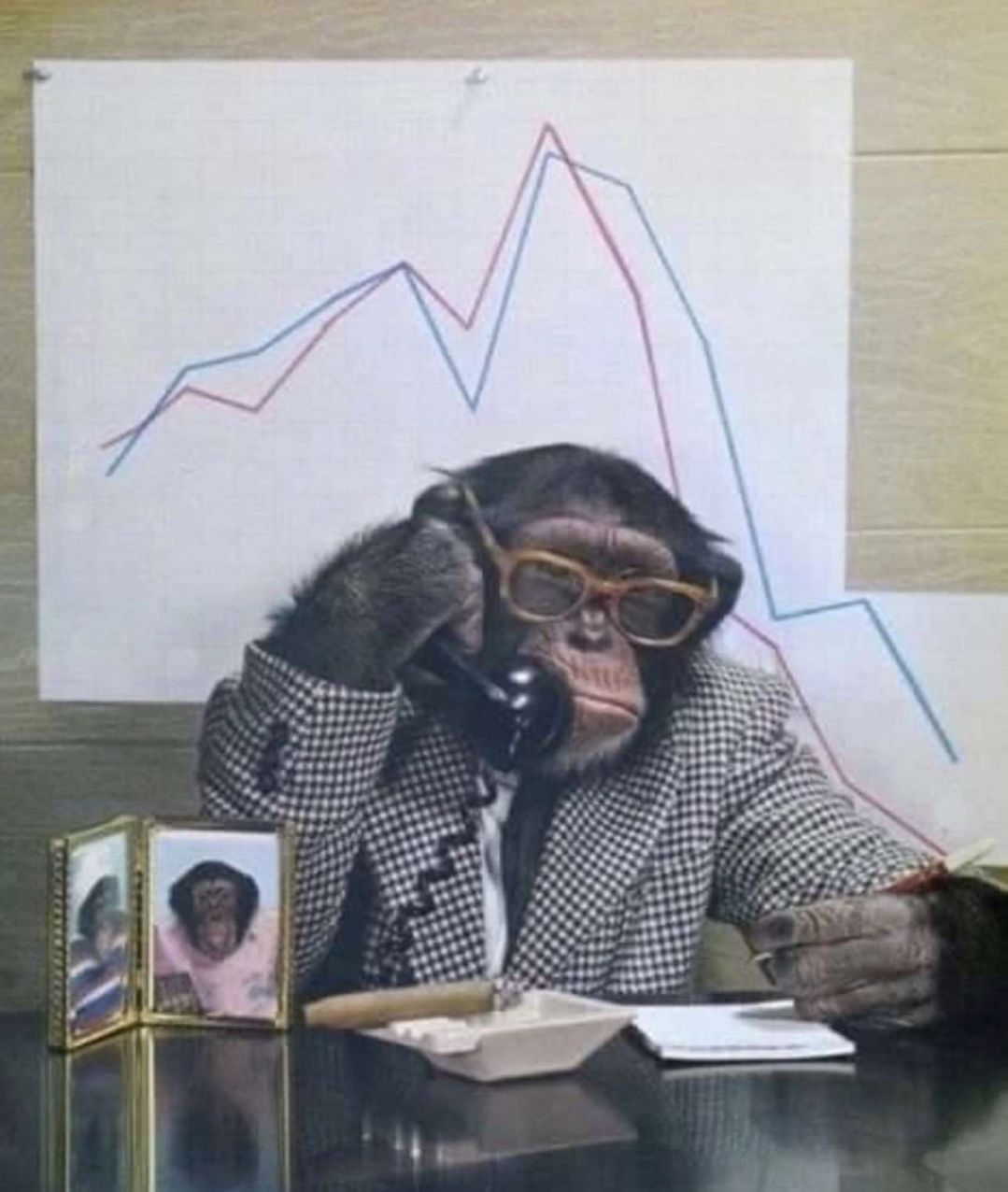Over the past 10 years, rates of colorectal cancer among 25 to 49 year olds have increased in 24 different countries, including the UK, US, France, Australia, Canada, Norway and Argentina.
The investigation’s early findings, presented by an international team at the Union for International Cancer Control (UICC) congress in Geneva in September 2024, were as eye-catching as they are concerning.
The researchers, from the American Cancer Society (ACS) and the World Health Organization’s (WHO’s) International Agency for Research on Cancer, surveyed data from 50 countries to understand the trend. In 14 of these countries, the rising trend was only seen in younger adults, with older adult rates remaining stable.
Based on epidemiological investigations, it seems that this trend first began in the 1990s. One study found that the global incidence of early-onset cancer had increased by 79% between 1990 and 2019, with the number of cancer-related deaths in younger people rising by 29%. Another report in The Lancet Public Health described how cancer incidence rates in the US have steadily risen between the generations across 17 different cancers, particularly in Generation Xers and Millennials.
Someone I went to high school with just died of colon cancer last week. Guy wasn’t even 40.
Friend of a friend’s husband died of colon cancer in 2016, he wasnt even 40 either.
Plastics permeate our tissues and people are surprised by this?
Yes, in particular the non-stick forever chemicals known as PFAS (aka Teflon and its precursors). The same chemistry that makes these plastics so non-stick also makes them resilient to being broken down chemically in our bodies. And the more the government tries to regulate them away, the more the industry plays whack-a-mole with modifications to the formula. It’s the designer drug problem writ large!
That and or wireless radiation I suppose…?
Wireless communications radiation physically cannot cause increased mutation rates and this is quite well studied. Wireless communication operates on frequencies (for the most part) below 10GHz, which has wavelengths measured in centimeters and meters. The biggest wave that can impact human DNA is UV which has wavelengths measured in nanometers - orders of magnitude of difference. So no, wireless communications are super unlikely to impact cancer rates.
So no, wireless communications are super unlikely to impact cancer rates.
I dunno, some of the shit I read on the internet coming over my WiFi feels like it’s giving me eye cancer
For colorectal cancer? Do you store your phone in your ass?
I mean I probably wouldn’t hate my morning alarm so much
Obesity tracks with this. Maybe not the direct cause, there might be some underlying cause for both, but excess fat absolutely does increase your risk of cancer. I’m pretty sure being big in any way does - if there is more of you, more cells, more chance of mutation.
There’s so many factors. Pesticides, nitrates are prevalent in most meat products, lack of dietary fibre can increase risks of colon cancer and high cholesterol.
Not to mention micro plastics (though they’ve been around for longer than we’ve known I bet) and forever chemicals like PFAs (though not sure if they’re cancerous??).
Don’t forget light pollution.
Nope, still a puzzle says the business owner. We just have no idea what could be doing this.
The diffrence is “living in an ecological system” and “living in an economic system”.
We’ve poisoned our planet for the last 100+ years and now we are dying off slowly from the fruits of our labor.
The irony.
if that were the case, you’d expect more cancer in older people as well, not just young people.
edit:
Cancer deaths are consistently declining in the US. American Cancer Society’s 2023 report
Despite the pandemic, and in contrast with other leading causes of death, the cancer death rate continued to decline from 2019 to 2020 (by 1.5%), contributing to a 33% overall reduction since 1991 and an estimated 3.8 million deaths averted.
that could also be because less people are being tested as a result of medical burnout, faculty reductions, or other more lethal illnesses taking it’s place.
just because it’s declining generally doesn’t mean it’s actually going away.
more likely the opposite, we see higher “incidents” because of improved detection and reporting. meanwhile deaths decline because of improved treatments and prevention.
It’s Covid
BBC News - News Source Context (Click to view Full Report)
Information for BBC News:
MBFC: Left-Center - Credibility: High - Factual Reporting: High - United Kingdom
Wikipedia about this sourceSearch topics on Ground.News
hope its not from deburring the chinese plastic dildos
Stay safe and use heavy lead dildos or the self glowing Marie Curie radium dildos instead.
…okay fine, I have a lump around my ass ring and maybe this convinced me to finally get it checked
These kind of cancers are the sad kind where they’re readily treatable if you catch them early. But if you put it off and wait too long, you can literally die anally and painfully from your procrastination.
All you’ll likely feel is pain and regret for the remainder of your life. Not just for putting this off, but for all the other things you put off for “later” as the end rapidly approaches. Doesn’t sound great.
Well yeah, we’re all shitting out microplastics all the time.
Interestingly, one accessible and effective way to remove microplastics in your body is donating plasma. You can literally get paid to decrease your circulating microplastics.
And give them to someone else?
No, the filtering process to prepare donations for use in plasmapheresis removes microplastics.
We probably aren’t shitting them out fast enough.
Maybe sweeteners
Recently I went to Seattle’s children’s museum and when it was about to close I found my self staring at the cosmic particle fog tank. It’s a tank that has low temperature evaporated alcohol in it which creates wisps of fog if highly energetic particles pass thru it. Well I didn’t know what it was until I started noticing the wisps and remembering a YouTube video in the device. It was like a wisp every 10 seconds. Suddenly this family passed by and the little 3 or 4 year old kid approaches the box to see what was in it. The thing lit up like a freaking Christmas tree. Like 10 wisps per second as soon as the kid put his hands on the side of the glass. I looked at him thinking, you don’t know, just live out your life in happiness kid.
That’s wild. Wonder why child was extra radioactive
I was totally bewildered. I should have run to the parents to show them. It was just crazy. Maybe they gave him a hammer and a bunch of smoke detectors the day before.
possibly leukemia and what you were seeing is the effects of treatment…
fuck all cancer.
Oh yeah, what if he had cancer treatment recently! That could have been? Or tracer fluid for MRI.
would be an injectable radiation therapy or a radiotracer for a PET or SPECT scan. afaik radioactive tracers aren’t used in MRI or regular CT scanning
A radioactive tracer can be used in a PET/MRI scan, or a gadolinium-based contrast medium used in an MRI scan. But I think you’re right about MRI not actually requiring a tracer.
MRI sometimes uses a non-radioactive contrast depending on what you’re trying to get images of. MRI is probably the safest imaging modality, but it’s very expensive, kind of difficult sometimes due to how long it takes, and isn’t useful for every kind of imaging that needs to be done.
Plastic Sugar Teflon Roundup Lead Pesticides Fertilizers
Just a few of the hazardous substances we regularly come into contact with on a semi-daily basis. The cause of the problem is capitalism.
Lead and Teflon have gone down since the 90s. I’d say it’s mostly plastic. Up and into most all of the 80’s everyone drank tap water and sodas/other drinks were all canned or glass bottles.
Then around 1990 everyone started putting their drink in plastic. Then 15 years later for some dumbass reason, people started to buy and drink all their water out of plastic as well.
Problem with PFAS and many other stuff is that it is accumulating in the biosphere. So while the new emissions go down, you still end up being exposed to more and more of them over time. They still get into the water and then into the plants and animals that you eat later.
- since the '90s*
- all of the '80s*
The largest contributor to the micro-plastics in your body is tire dust, though, it’s not new. More of it since the 90s, yeah, maybe there’s a threshold?
Doesn’t really seem like there’s more plastic dust? But since this study looked at colon cancer, maybe inhalation plastic has less of a role?
Old people come into contact with all that stuff too, not just young people.
edit:
Cancer deaths are consistently declining in the US. American Cancer Society’s 2023 report
Despite the pandemic, and in contrast with other leading causes of death, the cancer death rate continued to decline from 2019 to 2020 (by 1.5%), contributing to a 33% overall reduction since 1991 and an estimated 3.8 million deaths averted.
Agreed, the above doesn’t mesh with this variable
My point is that a lot of these things have flooded the market since the early 80s, which would make the tail end of Generation X the first generation that’s been in constant contact with these things their entire lives.
Scotch Guard (PFAS) was released in the 50s and everyone went gangbusters spraying it on everything.
Plastic based and molded products started to be seen around 1910 and surged in the 50s after WW2.
Processed foods were a thing since the 1800s with sugars as HFCS added into everything since the 60s.
Not to discredit what you’re saying, but, and this is solely based within the context of this particular headline discussion, it would cause you to look elsewhere. I’m thinking it’s more stress based. I’m working my butt off to evolve my small business just to survive. While we are having success and growth, it takes no less than 16 hours a day Sunday through Saturday to make it happen. I remember watching some family members and other inspiring business leaders as a kid in the 80s working regular 8 hour days and owning two homes.
Further to that, psychological medicine is so far behind and mental health has a major, if not direct, effect on physical wellness.
According to the American Cancer Society’s 2024 stats cancer deaths are declining in some areas (ie: lung cancer) but increasing in many others.
In 2024, 2,001,140 new cancer cases and 611,720 cancer deaths are projected to occur in the United States.
- Cancer mortality continued to decline through 2021, averting over 4 million deaths since 1991 because of reductions in smoking, earlier detection for some cancers, and improved treatment options in both the adjuvant and metastatic settings.
However, these gains are threatened by increasing incidence for 6 of the top 10 cancers.
- Incidence rates increased during 2015–2019 by 0.6%–1% annually for breast, pancreas, and uterine corpus cancers and by 2%–3% annually for prostate, liver (female), kidney, and human papillomavirus-associated oral cancers and for melanoma.
Incidence rates also increased by 1%–2% annually for cervical (ages 30–44 years) and colorectal cancers (ages <55 years) in young adults. Colorectal cancer was the fourth-leading cause of cancer death in both men and women younger than 50 years in the late-1990s but is now first in men and second in women.
- Progress is also hampered by wide persistent cancer disparities; compared to White people, mortality rates are two-fold higher for prostate, stomach and uterine corpus cancers in Black people and for liver, stomach, and kidney cancers in Native American people. Source
you’re conflating mortality metrics with incidence metrics. increasing incidents are very likely biased by improved detection and reporting.
anyway the point is not that cancer is going away or anything, but that you can’t easily say “pollution is giving us cancer” as the top comment is.
Both mortality and incidence rates are included in what I quoted.
I know, that was my point.
So your point was that I conflated metrics but that had nothing to do with the OPs original post?
capjtalismGreed, in any form. In any economic model. Greed.
Capitalism is greed as an economic model
Yes, but capitalism is an economic model that aids and abets greed. Where greed is rewarded almost exclusively.
Which economic model do you prefer?
The distinction between capitalism and socialism isn’t always a bright line.
And communism has yet to succeed.
An economic model that doesn’t prioritize profit over everything else… which is what capitalism does.
Let me know if you form an opinion beyond “all the dictators told me that this is what communism is, so I have no choice but to believe them”.
Can you point to communism succeeding. Anywhere?
Because it’s just another greed mechanism where those in charge, being corruotible humans, accumulate power and wealth. So far.
Cuba might have had a good run except our embargo didn’t help them.
I’m still convinced that the aluminum in deodorants are not safe either…
Same. When that news first hit I switched to non-aluminum brands just to be safe.
Aluminum is in antiperspirants, not deodorants (usually).
This
It’s not just capitalism. I’m from east Germany and you wouldn’t believe how much crap was buried, fumed into the air or pumped into the water in the name of peace and socialism.
Don’t forget, Chernobyl happened because of a cost saving measure.
BTW, you forgot alcohol, tobacco, vapes, stress and enforced sedentary lifestyle in your cancer list.
We’re on Lemmy, every evil in the world is the result of capitalism.
Doesn’t make it less true.
True. But if you scream “capitalism!” Every time something goes wrong, it calls into question how much critical thought actually went into that.
Younger generations drink less and use less tobacco than basically any other generation, so that’s probably not it.
I don’t know what you mean by “enforced sedentary lifestyle,” but young people tend to do activities that don’t involve exercise in their free time: computer use, phone use, video games, etc.
I think the fact that obesity is up something like 20% since the 90s is probably related. Young people exercise less and eat like shit, which seems pretty related to rectal/colon cancers.
I don’t know what you mean by “enforced sedentary lifestyle,”
Skill issue, I’d argue. May I introduce you to the concept of “working in an office”?
Yes, people only started working in offices 20 years ago. 🙄
in the name of peace and socialism.
That was the false justification because the actual reason was capitalism.
Don’t forget, Chernobyl happened because of a cost saving measure.
Cutting costs to make a profit is capitalism - especially when the “externality” is a catastrophe for other people.
Ah yes, the famous capitalist powerhouse Soviet Union.
Well it certainly wasn’t communist.
And it certainly wasn’t capitalist, so what’s your point?
Cutting costs to make a profit is capitalism
And socialism and communism are also dealing with limited resources and thus cutting cost is also something that will come up. It’s not like communism unlocks unlimited resources.
Honestly the working from home with less walking and more sitting seems like the biggest reason for this since there’s some pretty major dietary differences between all these countries, but they probably have a higher rate of WFH compared to other countries.
Read the article. The trend started in 1990, a time where wfh meant assembling ballpoint pens or prostitution.
“The overall evidence points to lifestyle change," says Shuji Ogino, professor of pathology and epidemiology at Harvard University
A quote from the article. People were starting WFH well into the 80s. It’s part of a sedentary lifestyle and growing obesity problem. Both of which researchers are pointing to as well as microplastics in our system.
No, they didn’t. Especially not in relevant numbers: https://www.statista.com/statistics/1450450/employees-remote-work-share/
This only starts in 2015 (I was too lazy to research your idiocy), but even then (very very much after the internet was a very relevant factor) we start at 7% and you can clearly see that there was an upwards trend at that time.
So in short: get your head out of your ass and don’t vomit you unfounded stereotypes and boomerisms on the general public.
What’s the stereotype you think I’m playing into? 😂
I literally work from home in the tech sector. I’m a young, fit 30 year old with this exact same set of issues. There’s no problem with WFH, what I’m pointing to is that a sedentary lifestyle which is boosted by people who only walk 5 steps from bed to office (like me) has helped to exacerbate an issue. My parent had work from home days back in the 90s and early 2000s, so we know they existed and started growing, much like this issue with cancer. It’s not because of only WFH, but it’s part of that grouping of a sedentary lifestyle. I think you’re taking my position on that as some sort of attack on WFH, which it isn’t.
Better back that colonoscopy screening up earlier then. I think it’s recommended at age 45 in the US, but I’m guessing insurance won’t want to cover screenings at 5-year intervals for an extra 20 years because money, dear boy.
It was recently dropped from 50 to 45 in the US. Was that also done for other countries?
Regardless of improved detection, the most likely explanation is increased obesity rates, which is covered in the article.
Last time I pointed this out, the toxin and micro plastics people blamed chemical exposure for increased obesity. They don’t want the Boogeyman to be a fat guy.
Wife and I both had diverticulitis resulting in resections under 40. She had no family history, I did. Still crazy











